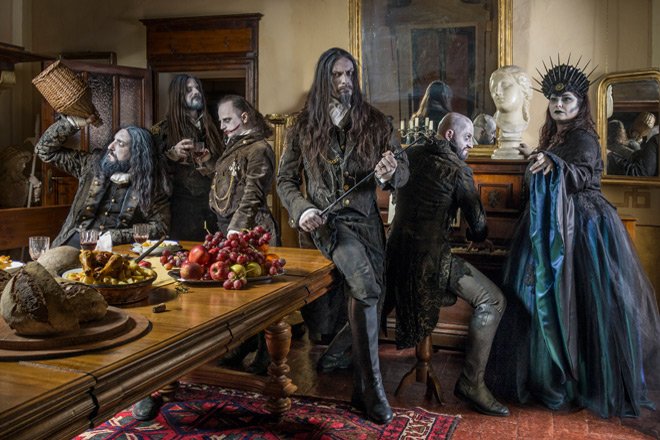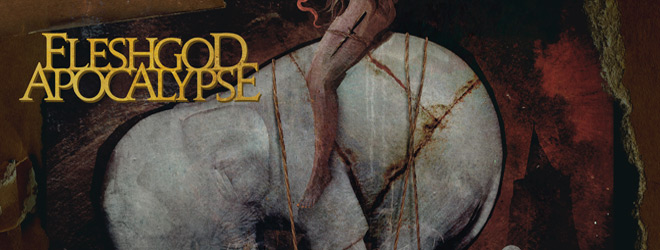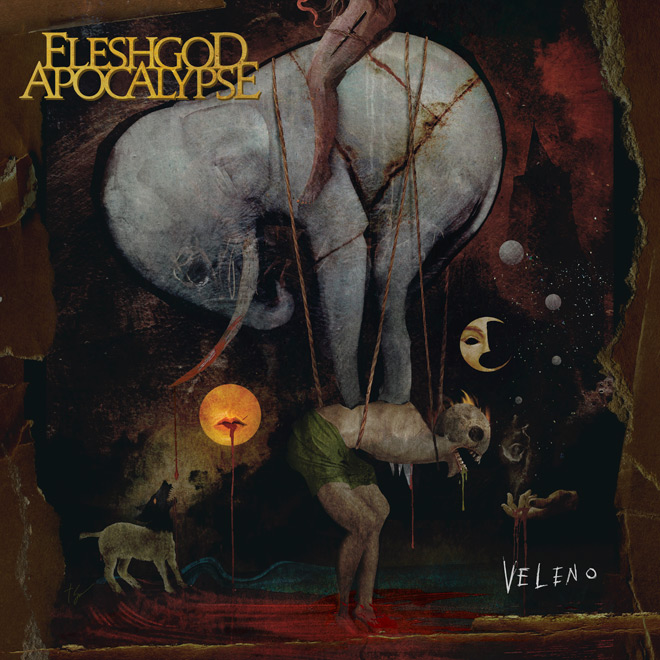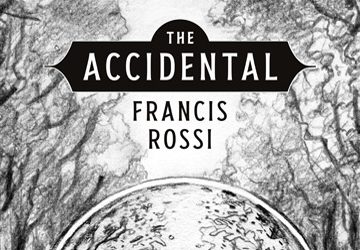
Their fifth overall studio album, longtime Vocalist/Guitarist Tommaso Riccardi took leave after that touring cycle for 2016’s King, as did Guitarist Cristiano Trionfera. Now, surviving founders Paolo Rossi, on bass guitar/clean vocals, and Francesco Paoli, on drums, vocals, as well sa nearly everything else, are buttressed by the familiar presence of Veronica Bordacchini on operatic vocals, with fresh blood coming in the form of Francesco Ferrini handling string arrangements along with general orchestral wizardry.
Unique to others on the scene, the band enjoys a diverse set of influences, from the eastern end of the Mediterranean and reaching into the hard melodic tastes of the rest of Europe. Sharing sea water (and a syllable) with the Hellenic band Septicflesh, along with some tour dates in recent years, as well as the influences between the two is subtly perceptible. In fact, sounds from nearby contemporaries Rotting Christ and Nightfall are also present in song progressions for Fleshgod Apocalypse.
Recording the Metal part of the album in Rome, Italy at Bloom Recording Studio and Kick Studio with long-standing collaborator Marco Mastrobuono, the orchestral parts were tracked at Musica Teclas Studio in Perugia before the effort was handed over to Grammy-nominated Jacob Hansen (Volbeat, Epica) at Hansen Studios in Denmark for mixing and mastering. This process in mind, the 11 track Veleno kicks off with “Fury” which starts after a brief, quiet opening, before bursting into brutal focus. The haunting chorus is a nice touch, with a mixture of male and female operatic voices all over the spectrum. A rip-roaring solo pops up halfway through, before the track slides back into its original groove. The sound here is so densely rich, it is impossible to focus on one aspect at a time.
Then “Carnivorous Lamb” bulldozes a handful of standard Death Metal riffs into its otherwise lush orchestration, in crisp juxtaposition to the loud clean screams that pepper the chorus; a nice pounding bass line holds the groove whole, guitars take turns soloing over top. The ease with which this band switches between Death Metal and Symphonic Metal, while dipping into the Black Metal trough, is as impressive as it is effortless. Rather than an cheap afterthought, the band’s use of piano is an integral part of otherwise brutal songs like “Sugar.” Still later, on “Worship and Forget,” the keyboards are quieter in the mix and follow a more percussive rhythm, but the sound is never forced, and has a role as important as more traditional Metal instruments.
Thereafter, “Monnalisa” combines spoken male vocals, plucky bass, and a chilling female to spin a dark tangled web of deception and seduction; Death Metal growls and scaling guitar complete the macabre recipe. This is while “Absinthe” offers a change of pace with more clean vocals, crowed with a maddening gusto; when the death growls do appear, they do so with almost comical pace and lyrical content.
Keeping momentum, “The Day We’ll Be Gone” begins with a slow operatic embrace, combining the soaring vocals of Bordacchini with the low growls of Paoli, as the crisp piano by Ferrini offers a dark, brooding groundwork. The song is nominally a duet, but Bordacchini easily outshines her partner as the focal point for the majority of the track, which overall has an almost sacred quality.
The opening blast beats of “Embrace the Oblivion” are jarring when placed alongside the symphonic and operatic themes used elsewhere on this track. The guitar riffs underneath the first verse, combined with the vocal specific techniques and song title, are hard to avoid as a subtle nod toward Embody the Invisible-era In Flames. The clangy bass, as loud throughout the album here as ever, is most noticeable on this track in particular.
Closing out the album, listening to the dense plodding piano of the title-track “Veleno” (loosely “poison” or “venom” in English), it is easy to picture the resurrection scene of 1994’s Interview with the Vampire, with Lestat seated at the harpsichord and issuing his creepiest challenge of the story. This keeps in line with the band’s common stage presence as rotting vampires from that same era.
Fleshgod Apocalypse is not easily confined to a single genre or category, and while Symphonic Metal has a flighty reputation, the Black and Death Metal portions of the band’s songs help avoid trappings to any particular genre. To some, the production may sound a bit too polished at times, but that may be a good problem to have to bear for a band so firmly ensconced with skill and style. Despite the recent lineup changes, the core of Francesco Paoli, Paolo Rossi, and Veronica Bordacchini, joined ably by Francesco Ferrini, accept the challenge of improving on King and the rest of the band’s catalog to date. That is why Cryptic Rock gives Veleno 4 out of 5 stars.







No comment